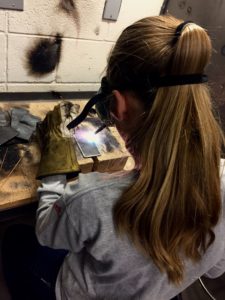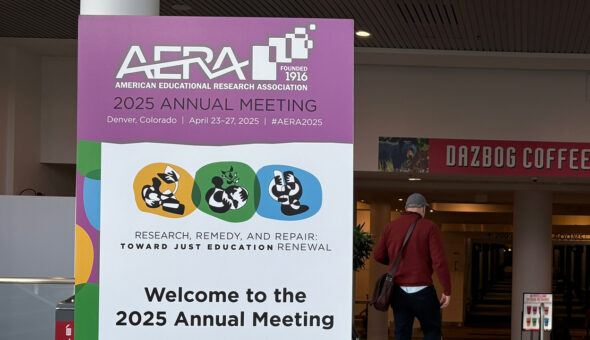Jim Hordern, University of Bath
About twenty years ago in a memorable article, work and employment researcher Jonathan Payne pointed out that the term ‘skill’ had an ‘unbearable lightness’, due to its simultaneous ‘possession of wholly different and incompatible meanings in different contexts.’ Young people progressing through school and higher education are encouraged to acquire presentation skills, networking skills, problem-solving skills and communication skills, and there is frequent mention of core skills, key skills, soft skills and transferable skills. Prospectuses, course information, job descriptions, person specifications, policy documents and careers advice blogs are replete with references to ‘skills’. This blog is being published on the United Nations’ Youth Skills Day, and there are skills competitions attended by thousands of young people annually, such as World Skills. Skills are everywhere but, as Payne noted, pinning down what the term actually means seems as tricky as ever.
 Skills remain just as popular with politicians and policymakers as they were twenty years ago. The OECD conducts extensive work on skills, the UK Government routinely promises to ‘boost the nation’s skills’, and the Australian Prime Minister, Scott Morrison, has recently announced a ‘skills overhaul’ in response to COVID 19. Politicians’ skills are also regularly put under the spotlight: British Prime Minister, Boris Johnson, has been publicly tested on his ‘singing skills’, understandably scrutinised for his ‘leadership skills’, and criticised for his lousy ‘tea-making skills’! The idea of skill has currency with the public and seems to mean something important. To have a skill suggests doing something well, whether that be baking a cake, a footballing trick, or a driving manoeuvre. Skilled manual labour is classified more highly than semi-skilled or unskilled. Skill sounds impressive and desirable: who wouldn’t want to be skilful? To be skilled is likely to mean a greater demand for your services, higher income and increased recognition. Skills are good: get skilled young person! And, please get re-skilled and upskilled, older people.
Skills remain just as popular with politicians and policymakers as they were twenty years ago. The OECD conducts extensive work on skills, the UK Government routinely promises to ‘boost the nation’s skills’, and the Australian Prime Minister, Scott Morrison, has recently announced a ‘skills overhaul’ in response to COVID 19. Politicians’ skills are also regularly put under the spotlight: British Prime Minister, Boris Johnson, has been publicly tested on his ‘singing skills’, understandably scrutinised for his ‘leadership skills’, and criticised for his lousy ‘tea-making skills’! The idea of skill has currency with the public and seems to mean something important. To have a skill suggests doing something well, whether that be baking a cake, a footballing trick, or a driving manoeuvre. Skilled manual labour is classified more highly than semi-skilled or unskilled. Skill sounds impressive and desirable: who wouldn’t want to be skilful? To be skilled is likely to mean a greater demand for your services, higher income and increased recognition. Skills are good: get skilled young person! And, please get re-skilled and upskilled, older people.
Yet this endless ‘skills-talk’ in organisations, government and the media masks considerable confusion about what skills are and how we acquire them. Is the skill of fixing a car engine the same as the skill of delivering a compelling presentation, or as the skill of managing a team to complete a construction project? Transferable skills are said to be in particular demand by employers, but as Hyland and Johnson identified there is no empirical support or philosophical justification for the idea that our abilities to accomplish tasks effectively are somehow ‘context independent’ or easily transferable beyond similar contexts. Further problems emerge when having a skill is seen as the same as having a qualification, and when training in skills is undertaken without reference to occupations, as vocational education experts Wheelahan and Moodie have emphasised.
A precise definition of skill is provided by the philosopher Winch, who suggests a skill is the ability to accomplish a specific task, and that skills are recognised if they are appraised (or evaluated) according to some standard or criteria. He argues that ‘skill’ by itself is insufficient to describe and explain more complex or integrated activities that require planning and management of a course of action over time. Winch suggests that our social activities or personal attributes are generally not best described as skills, as describing our ‘performance’ in social interactions in terms of skill can obscure our moral obligations to each other as human beings. The incursion of ‘skills-talk’ into our social relations can also be seen as encouragement to train ourselves to become more compliant workers and citizens, with deleterious consequences for society and our collective well-being. As the sociologist Bernstein observed, getting us to think of our personal relations in terms of skills ripe for improvement may make us ‘trainable’, flexible and adaptable, while undermining our deeper commitments to our pasts, our identities and each other.
While we should celebrate the skills that we all have and recognise how important these are for work and life, we could remain aware of some of the seductive potential of the term and the extent to which it can mask the distinctive contextual nature of abilities and the effort needed to achieve tasks to a high standard. There are also potentially dire consequences if we start to view our relationships with others as projects that require ‘skilful management’. Striving for more accurate explanations of our skilful practices should help us educate and work better together, and hopefully more fully appreciate each other’s genuine sk*l*s!
What do you think about skills? How would you define 'skill'? Tell us your thoughts on Twitter - @EducationBATH.
Respond



